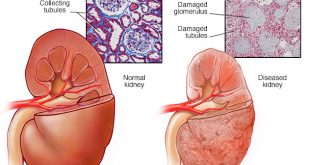Introduction
Chronic kidney disease (CKD) means that one’s kidneys are not functioning as well as normal. Fortunately, most cases are mild or moderate. Early detection is important. Treatment given appropriately will slow down the progression of kidney disease to prevent the need for life-long dialysis treatment.
What are the stresses of CKD patients?
“Chronic” does not necessarily mean severe as some may think. There are several levels of severity for CKD with many having only mild CKD.
When faced with the diagnosis of CKD, many will perceive and interpret it as a threat, challenge or loss. Soon, feelings such as anger, fear, depression, anxiety, confusion, frustration and helplessness may appear. Further denial of the impact of disease will only serve to harm the patient more both physically and emotionally.
In more advanced stage of CKD, one may have the following worries and concerns:
- Changes in bodily appearance
- Limitation of fluid and food intake
- Presence of nausea, vomiting, muscle cramps and fatigue
- Loss of bodily function
- Fear of being alone and decreased social life
- Vacation limitations
- Uncertainty about future and job interference
- Cost of dialysis treatment
- Role reversal in family
It may be difficult to maintain a relative balance of mind, and this may lead patients to avoid clinic visits, withhold treatment and eventually suffer worse outcomes.
How can you help as parents?
It is challenging for parents to cope with a child diagnosed with a chronic medical condition like CKD. The challenges are even greater in the advanced stages of CKD when the need for dialysis and kidney transplantation arises. It is normal for parents to feel that suddenly their world is out of control, or control is in the hands of others like doctors and nurses. Nevertheless, parents need to find effective ways to accept the medical condition into their daily lives. Several important initiatives are required such as:
- Become knowledgeable and participate actively in your child’s care
- Seek more information and understand the nature of the disease
- Pay attention to details of each treatment and their intended outcome
- Create a routine (with creative ideas) so that medication time is part of other daily routines
- Ensure your child follows the prescribed diet and fluid limitation in certain stages of disease
- Help your child understand the basics of their diagnosis and treatments, so as they grow, they can become increasingly independent in caring for themselves
- Nurture your child to have a sense of control over his/her own bodies like a healthy child.
Emotional support
Denial, anger, and depression will affect CKD patients negatively. The stress coping with CKD may exceed the patient’s capability to cope.
Children often see their parents as the pillar of their emotional strength. Parents must find ways to be supportive and yet avoid making unrealistic promises like “no more needles” and “no more such treatment after this”. Parents must try very hard not to give in to the patient’s anger and hopelessness and not to participate in unwise decision making by the patient.
Nurturing positive attitudes in a child will help in good adherence to treatment. Change of lifestyle and diet is important in retarding the progression of CKD.
Siblings need straightforward and clear explanations too, especially if their brother or sister is frequently hospitalized or requires a great deal of their parents’ attention. This may prevent the development of sibling rivalry and jealousy.
References
- Meier, M. (2005). Emotional Issues Faced by CKD Patients (Kidney Beginnings). AAKP Library: Emotional Issues. Retrieved Sept 21, 2012, from http://www.aakp.org/aakp-library/emotional-issues-faced-by-ckd-patients
- Kreuter, S.W (2005). The CKD Support System. AAKP Library: Emotional Issues. Retrieved Sept 21, 2012, from http://www.aakp.org/aakp-library/CKD-Support
- Doyle, M. (2006). Parenting and CKD: Keeping Control… and Finding a Balance. AAKP Library: Emotional Issues. Retrieved Sept 21, 2012, from http://www.aakp.org/aakp-library/Parenting-and-CKD
- Bates, K. (2004). Self-Confidence and the Teenage Dialysis Patient. AAKP Library: Emotional Issues. Retrieved Sept 29, 2012, from http://www.aakp.org/aakp-library/Teenage-Dialysis-Patient
- Wojtasiak, E. (2005). How patients with end-stage renal disease manage their condition. Rocz Akad Med Bialymst, 50 Suppl 1, 129-132.
- Spinale, J., Cohen, S. D., Khetpal, P., Peterson, R. A., Clougherty, B., Puchalski, C. M., et al. (2008). Spirituality, social support, and survival in hemodialysis patients. Clin J Am Soc Nephrol, 3(6), 1620-1627.
- Yeh, S. C., & Chou, H. C. (2007). Coping strategies and stressors in patients with hemodialysis. Psychosom Med, 69(2), 182-190.
| Last Reviewed | : | 20 June 2016 |
| Writer | : | Dr. Ng Eng Khim |
| Accreditor | : | Dr. Sunita Bavanandan |
 PENDIDIKAN PESAKIT Kementerian Kesihatan Malaysia
PENDIDIKAN PESAKIT Kementerian Kesihatan Malaysia
